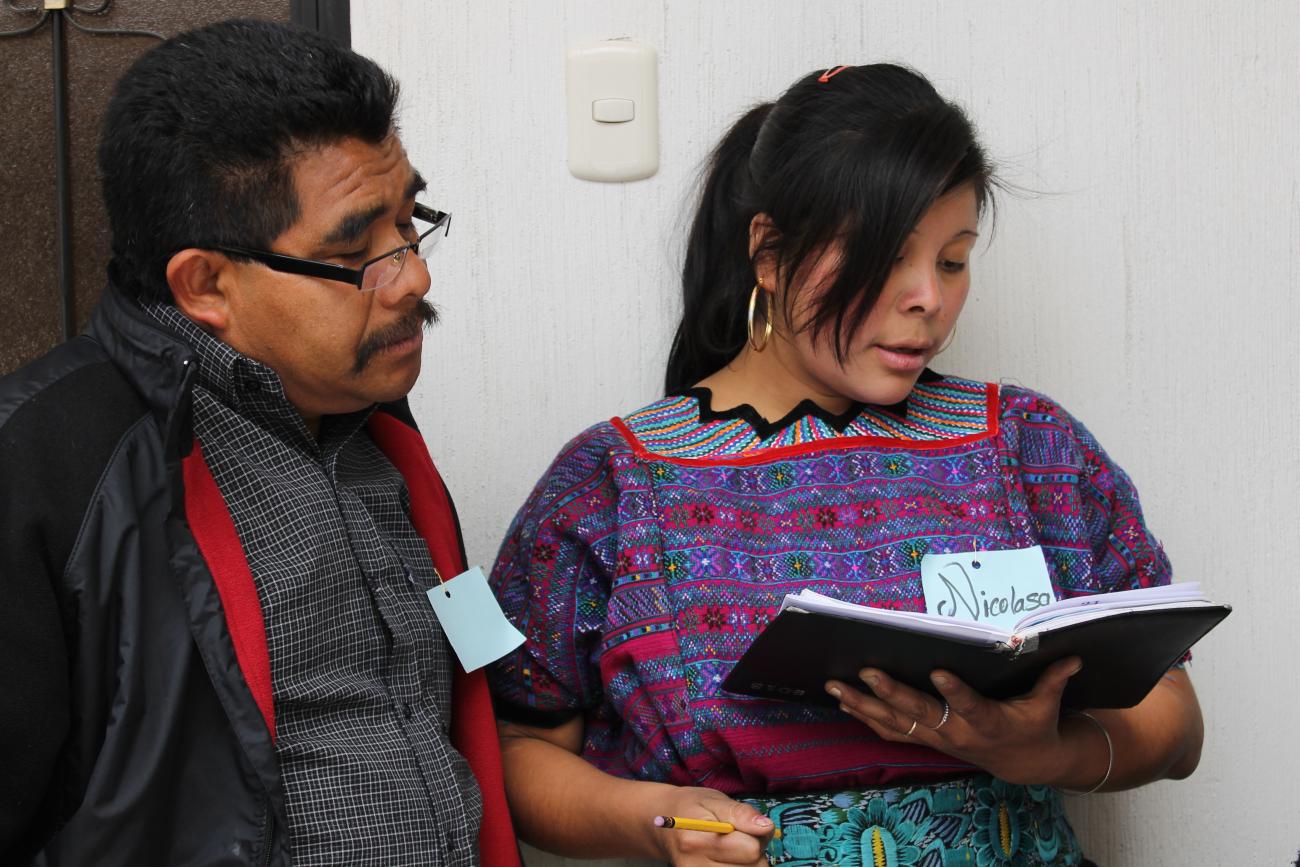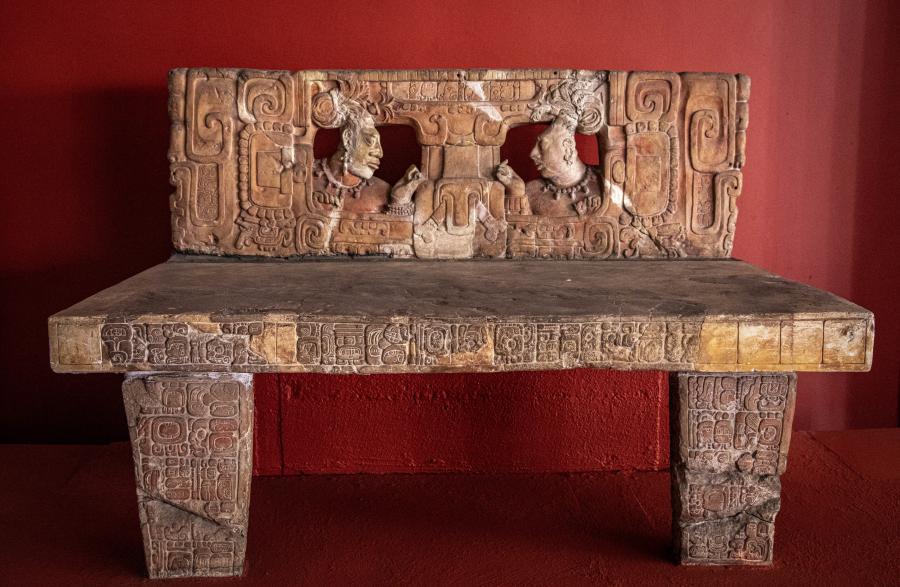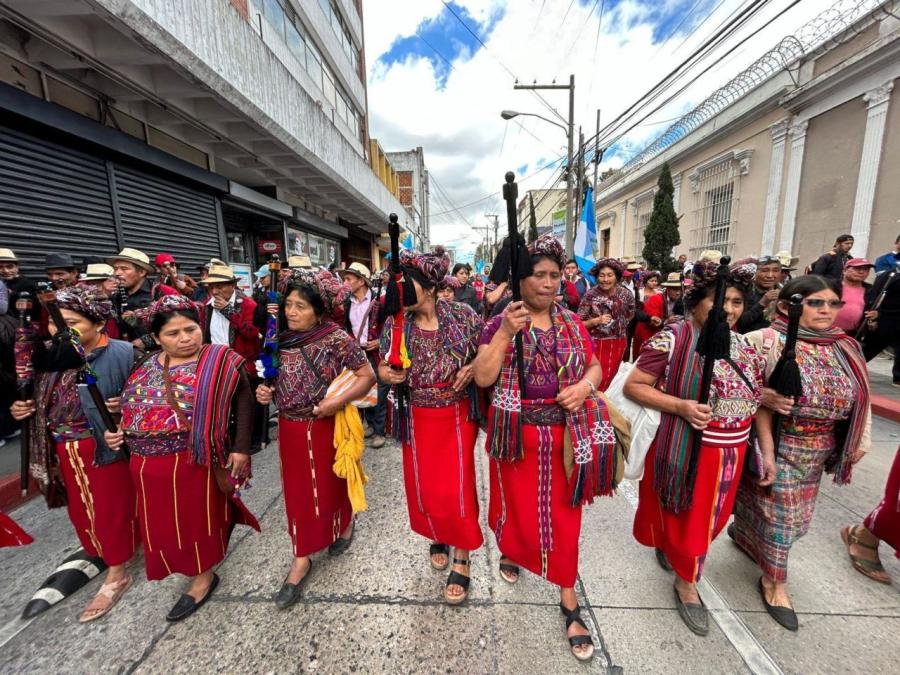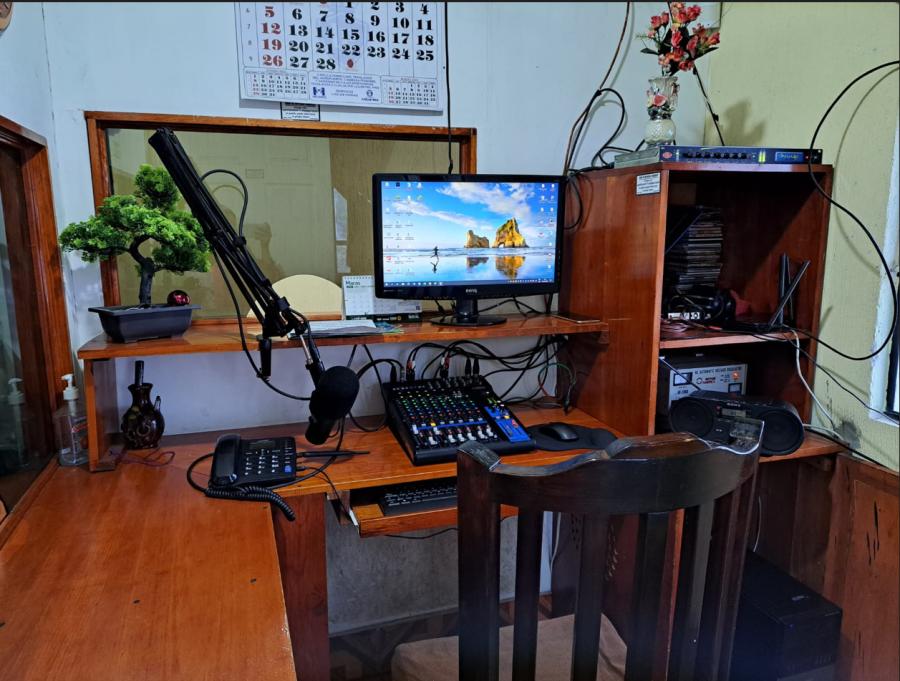
On May 25, 2013, more than 25 community radio station volunteers from Cultural Survival’s radio network across Guatemala gathered for a workshop in the Mujb’ab’l Yol training center in San Mateo, Quetzaltenango. The focus of the workshop was on Indigenous People’s Rights.
The topic of this workshop complements the work that our team at Cultural Survival is currently taking part in internationally. Anselmo Xunic, manager of Cultural Survival's Community Radio Program, and Cesar Gomez, the Community Radio Content, Production and Training Coordinator, were currently in New York City attending the UN Permanent Forum on Indigenous Issues. They presented on the struggle for the right to community radio in Guatemala at the Forum, and met with various ambassadors, the Special Rapporteur on the Rights of Indigenous Peoples, members of the Forum, media personnel, and associates of the UN High Commissioner on Human Rights, to discuss the issue. With these actions, we are working to apply more international pressure on the Guatemalan government to change the discriminatory telecommunications laws here in Guatemala. At the same time, we are working with community radio stations to keep Indigenous communities here informed on their rights including the right to their own forms of communication in their own languages.
[[{"fid":"61745","view_mode":"media_original","type":"media","attributes":{"height":2848,"width":4272,"style":"height: 267px; width: 400px; ","class":"media-element file-media-original"},"link_text":null}]]
Radio volunteers wrote out some expectations and reasons for attending the workshop to share with the group.
The workshop was led by José Gomez, one of the founders of Radio Doble Vía, but was arranged such that everyone was welcome to participate actively throughout. We began by discussing what it means to be Indigenous and what are some basic human rights. We then reviewed the history of Indigenous rights, and discussed the enormous discrepancies between what is written regarding the rights of Indigenous peoples in official legal documents and the reality for Indigenous communities around the world and especially in Guatemala. The big question that arose time and time again was, “How do we make these rights a reality?”
Lorenzo Mateo Fransisco, founder of Radio Snuq Jolom Konob, stated, “It is our obligation as community radio announcers to keep our communities informed. The first step to realizing our rights is knowing what they are. If we don’t know what our rights are, where do we begin?” After an informative workshop and a critical discussion, the volunteers separated into three groups to write brief radio spots regarding Indigenous rights. These radio spots will be shared within our network of community radio stations.
[[{"fid":"61746","view_mode":"media_original","type":"media","attributes":{"height":2848,"width":4272,"style":"width: 400px; height: 267px; ","class":"media-element file-media-original"},"link_text":null}]]
One of the groups of volunteers working on their radio spot.
Below read one of the radio spots that was written by one of the groups of volunteers during Saturday’s the workshop.
Radio Spot in English:
Why are we the way that we are?
Because our governments are made up of people who have made decisions without taking into account the demands and the needs of our communities. That’s why informing ourselves about what is happening in our country is important so that we don’t continue to let them take advantage of us. My participation, your participation, our participation is fundamental for the development and progress of our communities. Participate, let’s all participate! We are all Guatemala!
Radio Spot in Spanish:
¿Por qué estamos como estamos?
Porque nuestros gobernantes son personas que han tomado decisiones sin tomar en cuenta las demandes y necesidades de los pueblos. Por eso informamos de lo que esta pasando en nuestro país es importante para que no nos sigan dando atole con el dedo. Mi participación, tu participación, nuestra participación es fundamental para el desarrollo y progreso de nuestros pueblos. Participa, participemos! Todos somos Guatemala!



